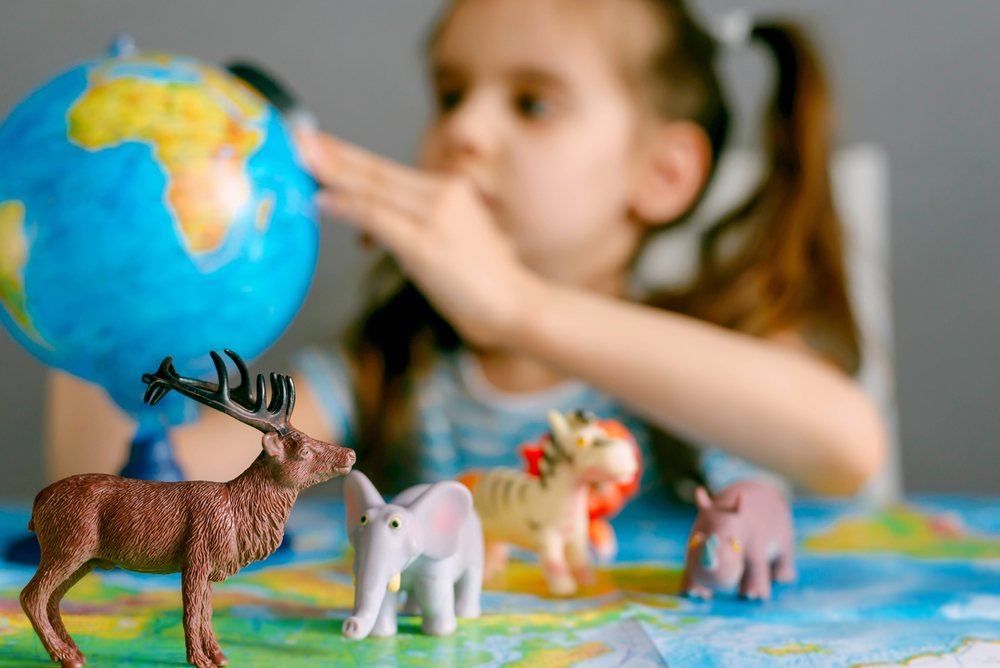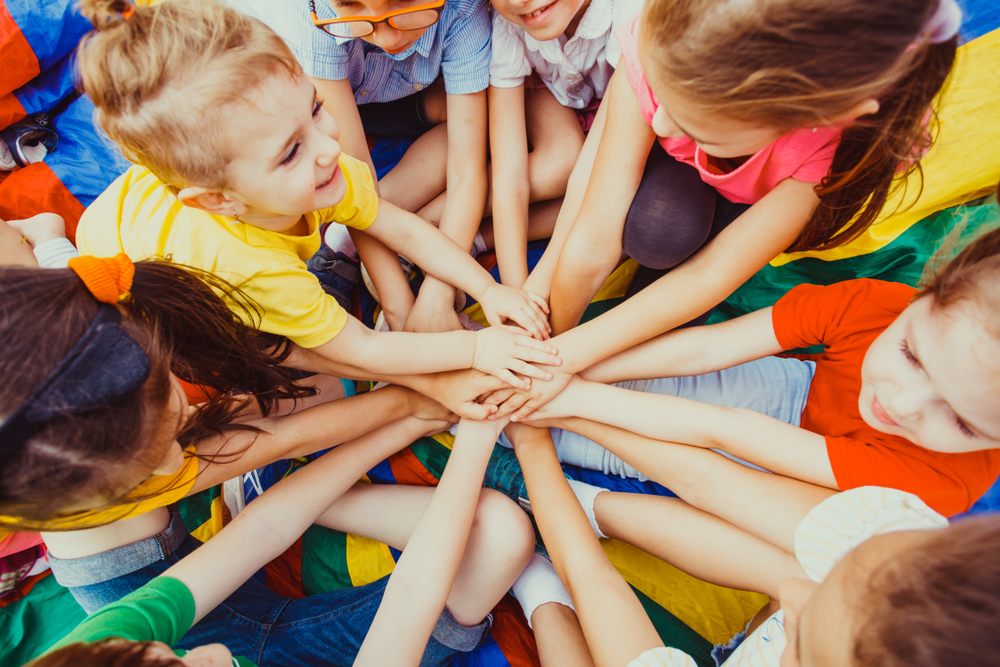Vocabulary Building Normal Social Studies Worksheets for Ages 3-6
6 filtered results
-
From - To
Enhance your little one's vocabulary with our engaging Vocabulary Building Social Studies Worksheets, designed specifically for ages 3-6. These worksheets offer interactive and age-appropriate activities that introduce essential social studies concepts through fun, relatable themes. Kids will explore their surroundings, including community, family, and culture, as they connect words with images and engage in simple exercises. Ideal for preschool and kindergarten learners, our materials promote language development and comprehension skills in an enjoyable way. Foster a lifelong love for learning while building a solid vocabulary foundation for your child's future educational success! Download now and watch them thrive while exploring the world around them.
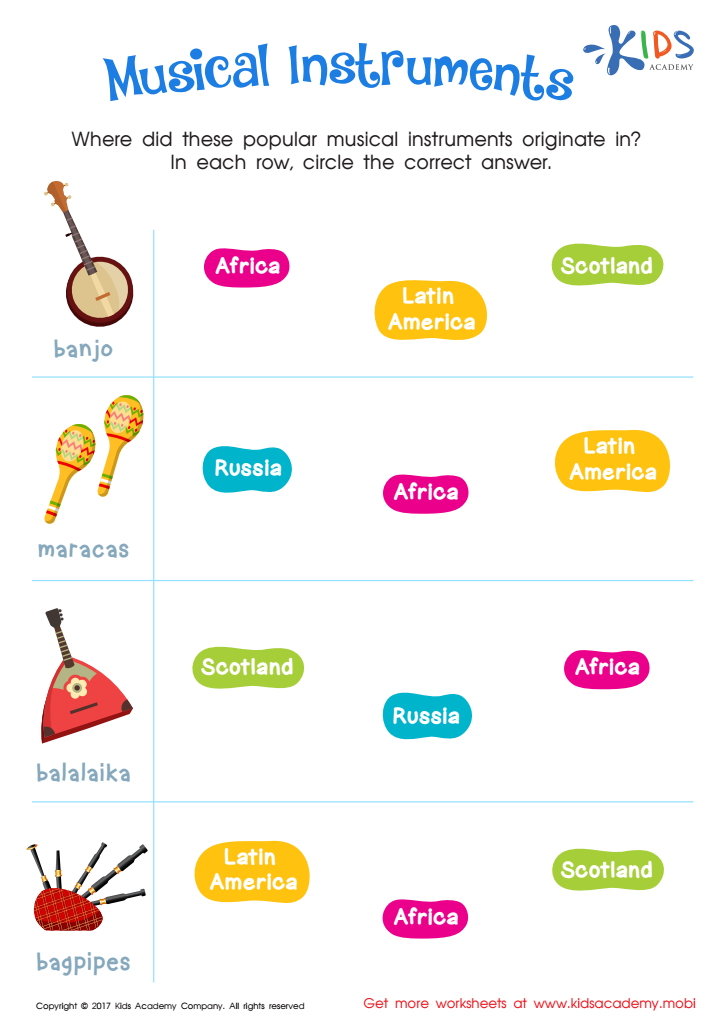

Musical Instruments Printable
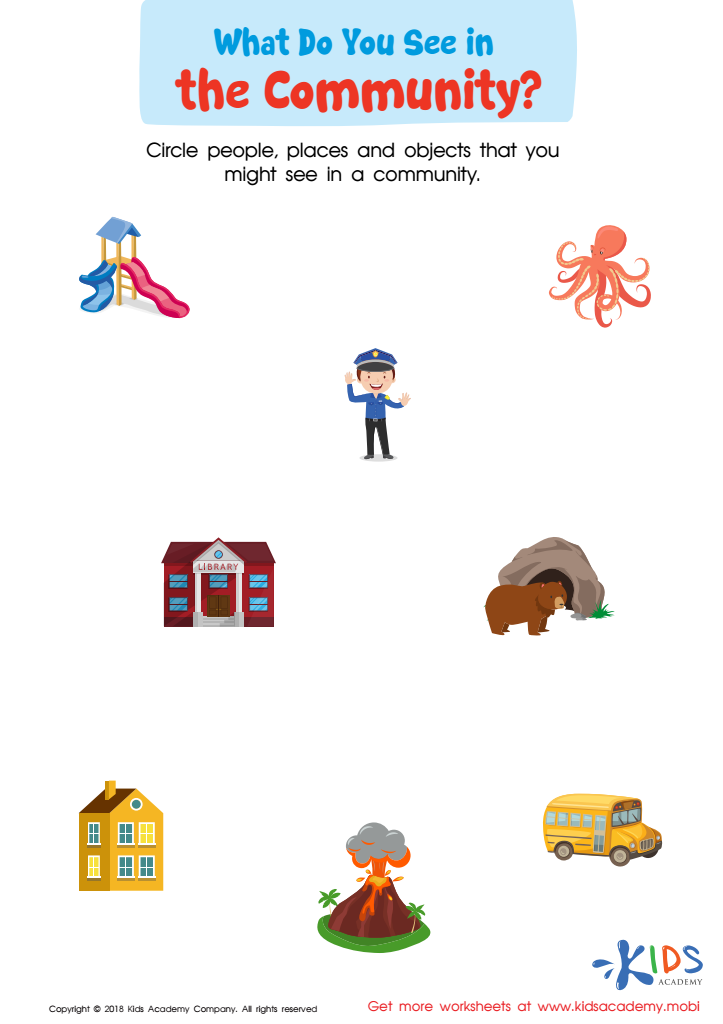

What Do You See in the Community Worksheet
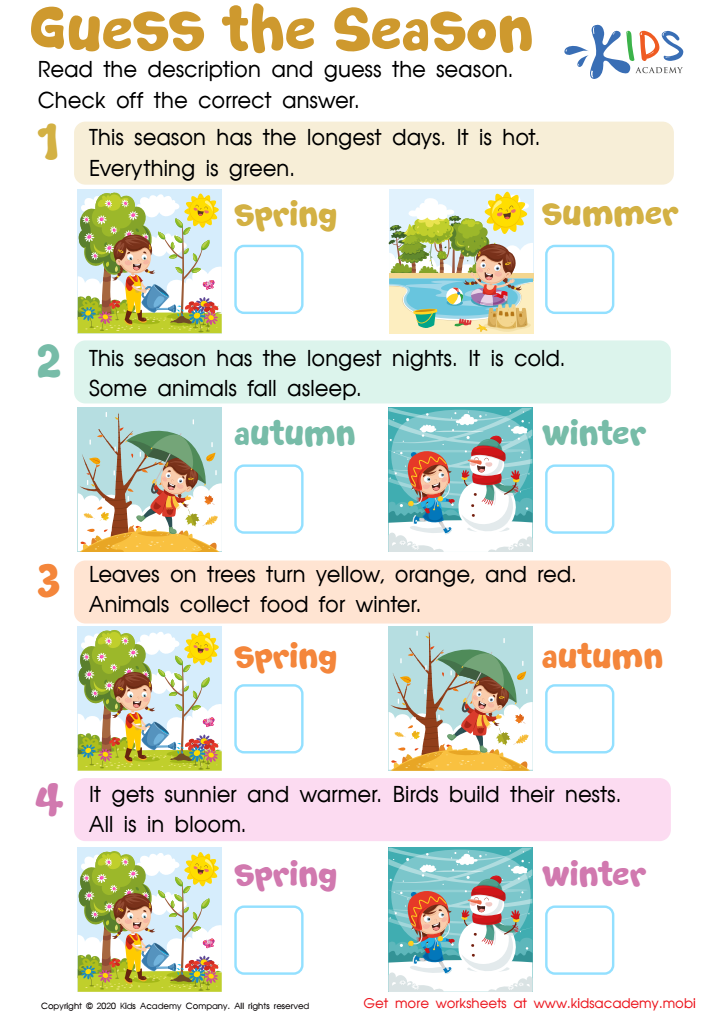

Guess the Season Worksheet
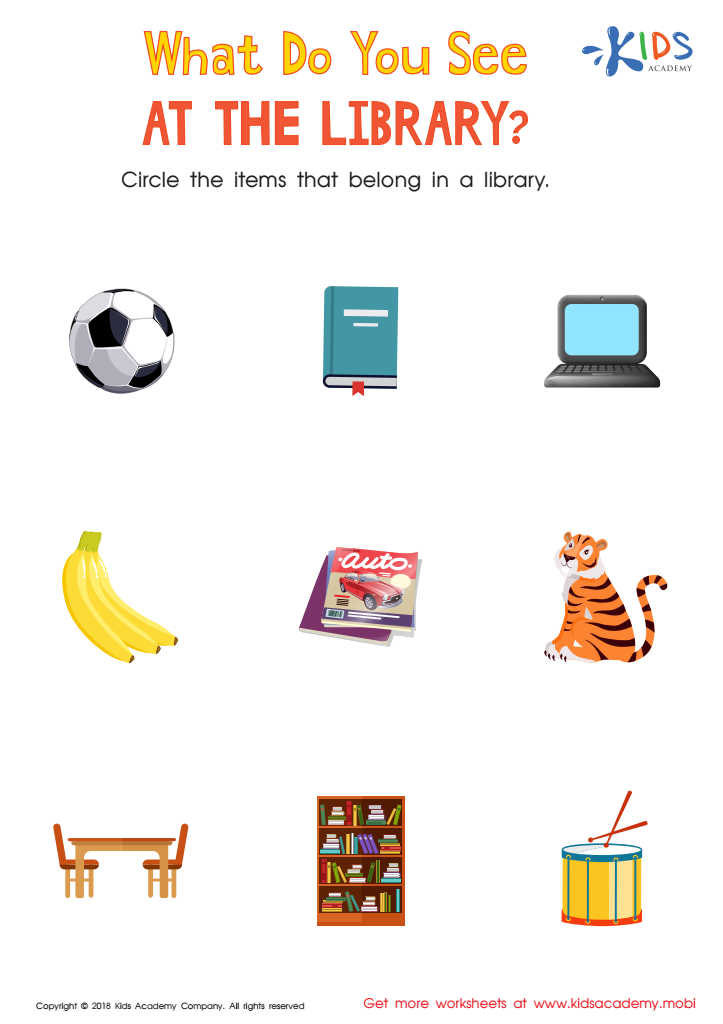

What Do you See at the Library? Worksheet
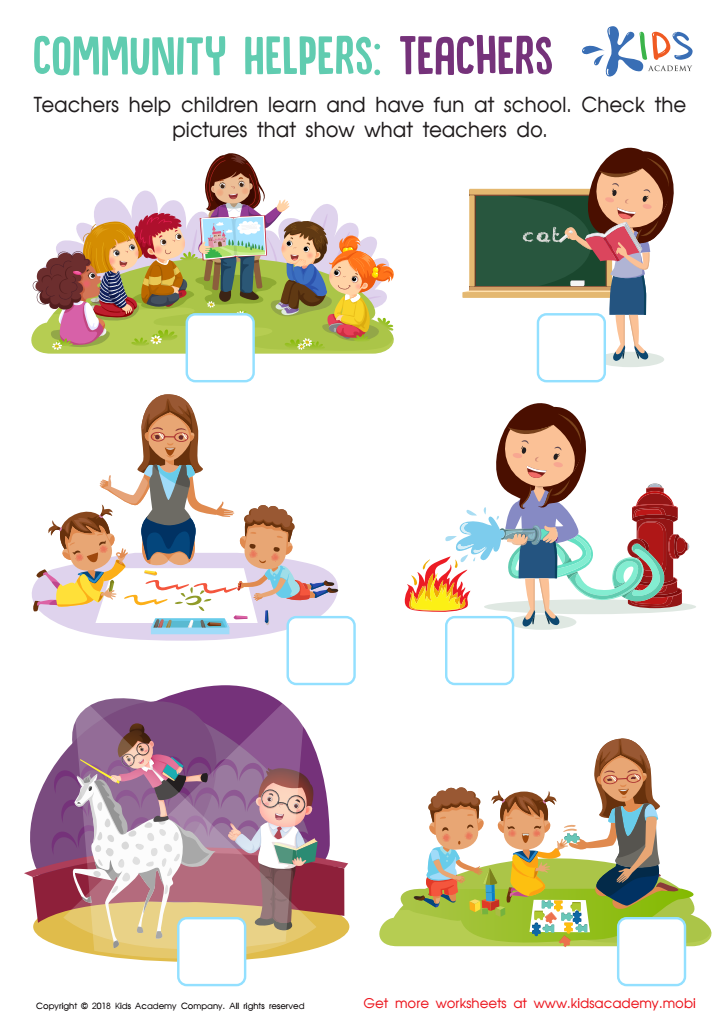

Teachers Community Helpers Worksheet
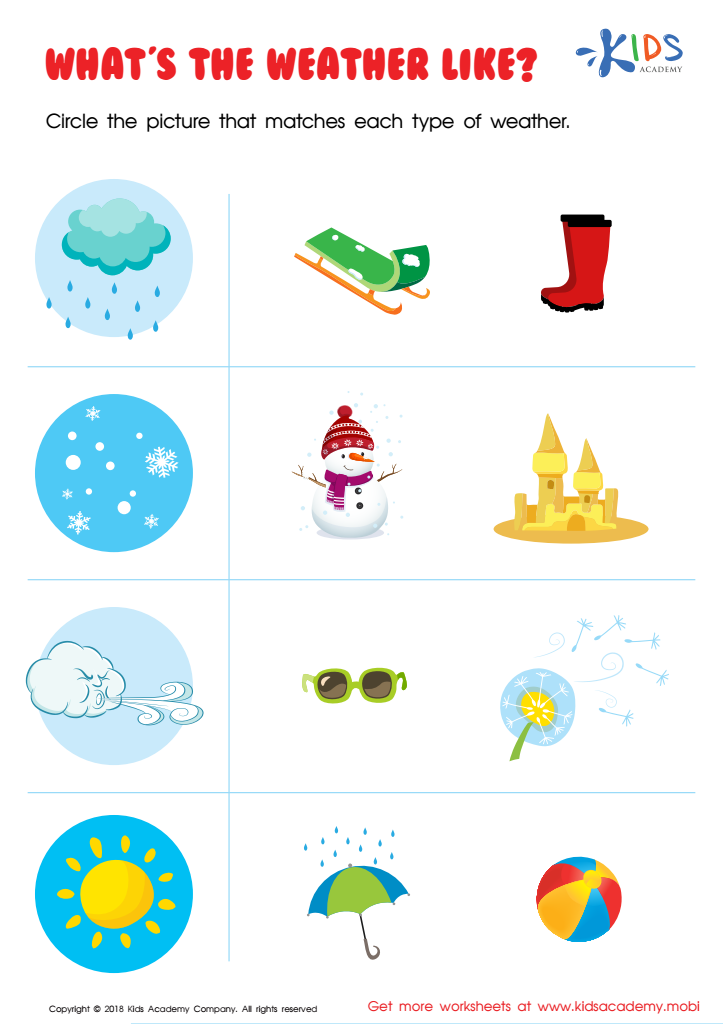

What's the Weather Like? Worksheet
Vocabulary building is crucial for children aged 3-6, particularly within the context of Social Studies, as it lays the foundation for effective communication, critical thinking, and understanding of their world. At this stage, children begin to grasp complex concepts about community, identity, culture, and history. By enhancing their vocabulary, children gain the tools to express thoughts, ask questions, and engage in discussions about their experiences and the society they live in.
Teachers and parents should be deeply invested in this process because a robust vocabulary promotes higher levels of comprehension and academic success. When children encounter new terms related to social studies—such as "neighborhood," "ethnicity," or "tradition"—they develop a richer understanding of their community and the broader world. This early understanding fosters curiosity, empathy, and inclusivity, as they learn to appreciate diverse cultures and histories.
Additionally, strong vocabulary skills contribute to better reading and language abilities, setting the stage for lifelong learning. Engaging in conversations, storytelling, and interactive play can significantly enhance a child’s vocabulary. Therefore, prioritizing vocabulary development in Social Studies not only enriches children's academic experiences but also nurtures responsible, informed future citizens.
 Assign to My Students
Assign to My Students


.jpg)

